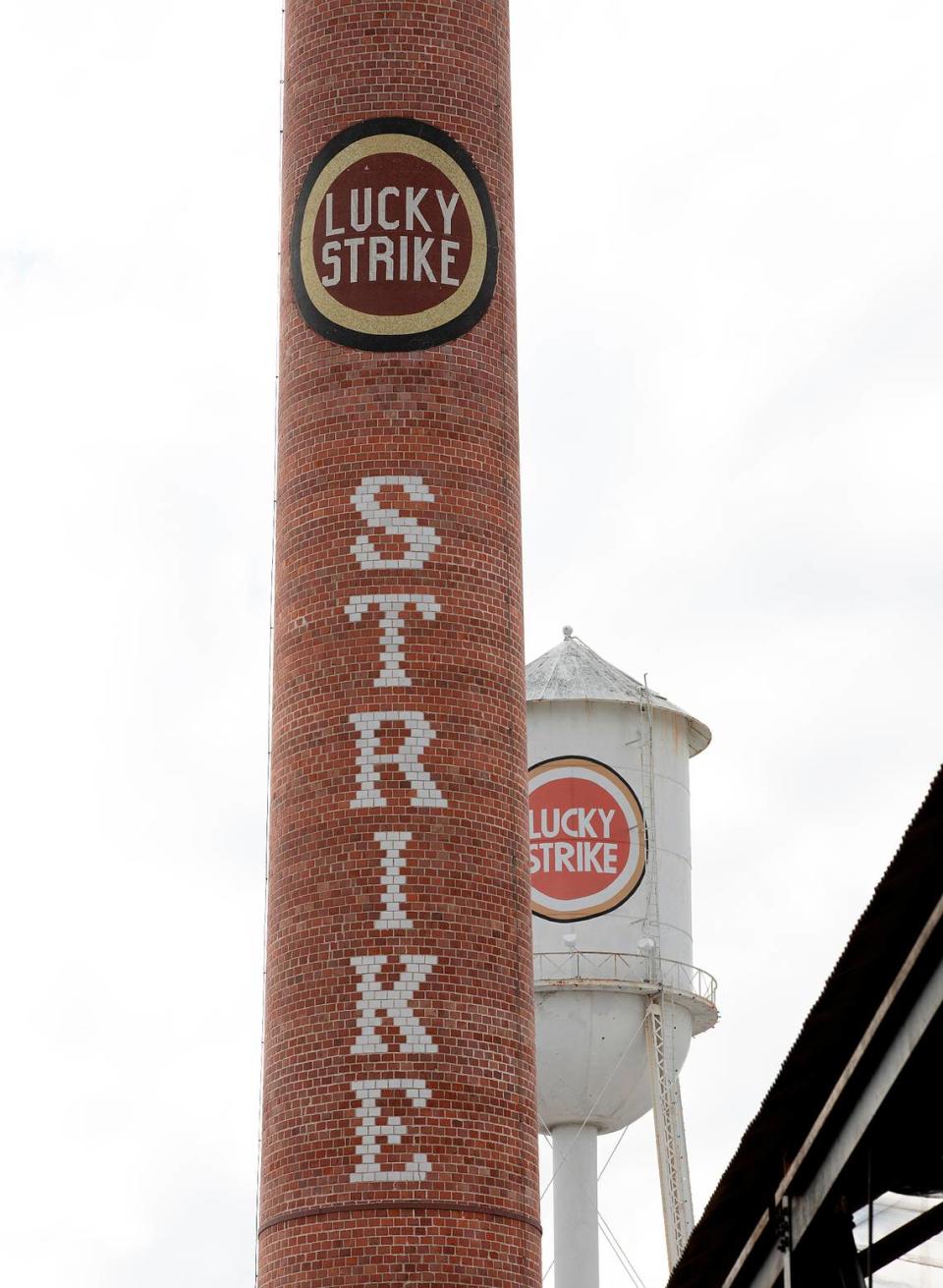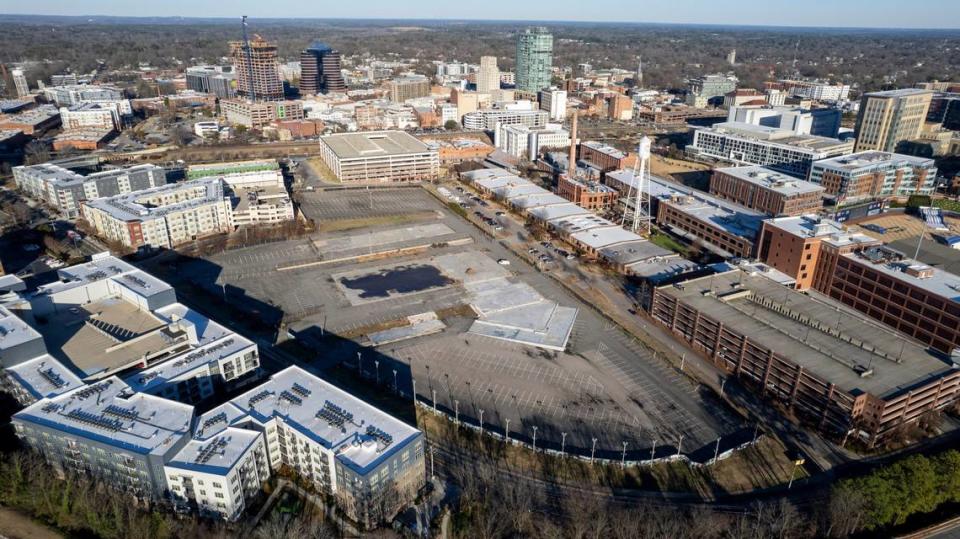20 years ago, American Tobacco helped remake downtown Durham. What’s coming in 2024?
Twenty years after local developers began renovating American Tobacco’s iconic brick campus on the edge of downtown Durham — and 150 years after the oldest building was constructed — plans are in place for an ambitious expansion into land next door.
Capitol Broadcasting Co. aims to build a residential skyscraper and two mass timber commercial buildings, plus an additional parking deck.
The company also says it’s secured a major grocery store tenant, but declined to name it. Grocers have avoided downtown for years, and it’s become an increasing source of frustration for the estimated 10,000 people living there.
“I hear that all the time, like when are we getting a grocery store downtown? We appreciate the bodega, but that’s not a grocery store. We need a real grocery store,” Mayor Leonardo Williams said.
Adam Klein, who directs Durham real estate for the company, said their timeline is contingent on filling out the offices with preleased tenants.
“Once that is in place, we’ll be able to get it going. We have our financing and our permitting secured,” Klein said. “The lease activity has been strong on the retail side. We just need more on the office side.”
The expansion is powered by:
Capitol Broadcasting, which completed the original American Tobacco campus renovation and also owns WRAL and the Durham Bulls baseball team.
Hines, the developer behind Fenton in Cary, who also recently purchased IBM’s campus near Research Triangle Park.
Affinius Capital, a financial investor.
The team acquired the property, long home to University Ford, in 2016 after years of negotiation. The dealership, which was razed in 2022, charged a premium — $28.8 million for 11 acres.
The new buildings will remain true to the original American Tobacco campus in concept, with office space anchored by ground-floor retail, split by a pedestrian-friendly central plaza.
What’s in the plans:
19: Stories in the high-rise apartment tower.
343: Number of rental apartment units
353,000: Square feet of leasable office space in two mass timber buildings
Six and seven: Stories in the pair of office buildings
104,000: Square feet of retail space
One: Grocery store, the first in the downtown footprint
From 1874 to 2004
The now-bustling American Tobacco campus looked very different 20 years ago.
The red brick warehouses had been crumbling since 1987, when cigarette manufacturer American Tobacco Company, makers of the popular Lucky Strike brand, ended business after a century in Durham. The buildings were constructed between 1874 and the 1950s.

Two others attempted renovations before Capitol Broadcasting optioned the property in 1999, according to newspaper archives compiled by Duke University scholar Daria Anichkova. It took nearly five years to convince the city and county to invest a combined $43 million for parking decks that made the project feasible.
By 2004, the campus had begun leasing offices. Duke University, pharmacy giant GlaxoSmithKline and ad agency McKinney helped anchor the newly renovated spaces, which featured exposed brick and 18-foot windows.
Fewer than 500 people lived downtown then, according to Klein.
Now, Downtown Durham Inc. estimates there are around 10,000 downtown residents. They expect the population to swell past 18,000 when the number of units under construction or announced are complete.

‘We were told not to go downtown’
The development is often credited with helping spark downtown Durham’s revitalization. At 17 acres, it is the state’s largest ever historic preservation project.
“City boosters believe the redevelopments will help resuscitate Durham’s central business district, which until recently was rendered lifeless by the decline of the tobacco industry,” The News & Observer reported in late 2004, rattling off a lengthy list of new construction and crediting American Tobacco’s investments with spurring new financing.
Williams said when he moved to Durham in 1999, it had a reputation for being unsafe.
“We were told not to go downtown,” he recalled. “Also there wasn’t really much down there.”
The campus, through which a man-made river flows, is now home to dozens more companies — including Meta — as well as apartments, shops, restaurants, a daycare and a YMCA. The Durham Performing Arts Center and the Durham Bulls Athletic Park are across the street.
Klein said 1.2 million people visit each year and 4,500 workers are employed across the campus today. That’s more than the 3,500 people employed by the tobacco company in Durham at its peak.
A series of events are planned in 2024 to mark the anniversary and celebrate the evolution into a “true mixed-use environment.”
“It really checks so many boxes,” said Williams, who owns a restaurant on the campus. “I think that is a prime example of how we could take the DNA of our city and just innovate and create with it to make beautiful spaces that serve a public good.”


